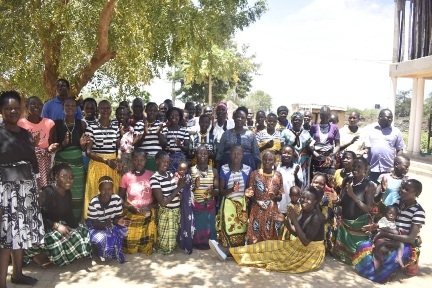By Richard Onapatum
KOTIDO, UGANDA -Nakere Rural Women Activists (NARWOA) in partnership with Womens International Peace, with funding from USAID and Global Fund for Women has trained 60 farmers from Panyangara and Kotido Sub-Counties in pre and post harvest handling techniques.
The training took place at Royal Madiba Hotel in Kotido District on Thursday, 19th September 2024.
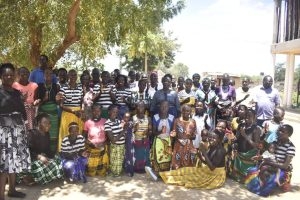
Anero Florence, NARWOA’s Project Officer, emphasized, “This training aims to equip farmers with essential skills to improve crop quality, reduce post-harvest losses, and increase yields. Our facilitators have provided hands-on training, demonstrations, and interactive sessions to ensure participants grasp the concepts.”
Florence added, “We’ve covered critical aspects of agricultural management, including soil preparation, planting, harvesting, and storage techniques. We’re confident that participants will apply these skills to enhance their productivity and improve their livelihoods.”
Ilukol Denis, Agricultural Officer, Kotido District, successfully handled the training of participants, sharing his expertise in best practices for pre and post harvest handling.
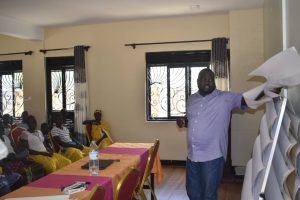
“Farmers must adopt good agricultural practices to increase productivity and income,” Denis emphasized during the training. “Proper handling techniques will significantly improve crop quality and yields, contributing to food security and economic growth in the region.”
Denis guided participants through practical sessions, addressing common challenges and providing tailored solutions.
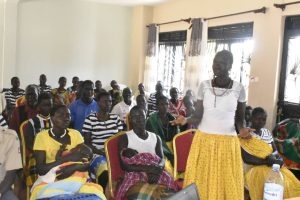
Jessica Ruth Ataa, NARWOA’s Executive Director, expressed enthusiasm for the project’s potential impact.
“We’re committed to empowering rural women and communities through sustainable agriculture and economic empowerment,” Ataa said. “Although the project duration is short, we expect tangible success stories and significant improvements in farmers’ productivity. I appreciate the stakeholders for selecting dedicated and enthusiastic participants. We urge the farmers to cooperate fully in implementing the learned techniques, ensuring the project’s success. Our organization remains dedicated to supporting initiatives that promote economic growth, social development, and environmental sustainability.”
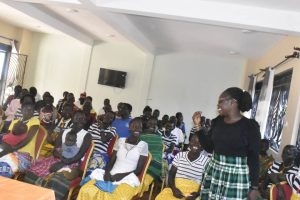
Farmer Challenges: Opportunities for Future Support
Despite the successful training, farmers in Kotido District still face numerous challenges, including:
1. Theft and vandalism of crops and livestock
2. Poverty and limited financial resources
3. Insecurity, affecting farming activities and market access
4. Lack of storage facilities for produce, leading to post-harvest losses
5. Limited access to farm inputs, such as seeds, fertilizers, and tools
6. Insufficient training and extension services
7. Limited knowledge on government programs and services, including seed distribution
8. Floods and climate-related disasters, affecting crop yields and livestock
9. Limited market access and fair prices for produce
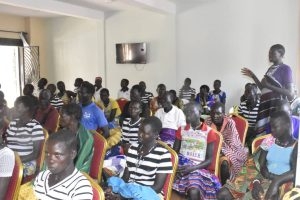
Ilukol Denis emphasized, “Addressing these challenges requires a multi-faceted approach, involving government agencies, NGOs, and community-led initiatives.”
Jessica Ruth Ataa added, “We will continue to work with farmers, government agencies, and partners to address these challenges and ensure sustainable agricultural development in Kotido District.”
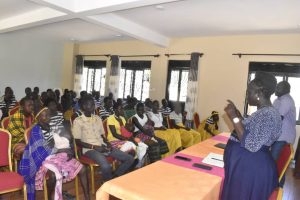
The training focused on best practices in agricultural management, crop quality improvement, and yield increase.
NARWOA works to improve rural women’s and communities’ lives through sustainable agriculture, economic empowerment, and social development programs.


